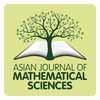Plagiarism Policy
Plagiarism is the unethical act of copying someone else’s prior ideas, processes, results or words without explicit acknowledgement of the original author and source. Self-plagiarism occurs when an author utilizes large part of his/her own previously published work without using appropriate references. This can range from getting the same manuscript published in multiple journals to modifying a previously published manuscript with some new data.
Types of Plagiarism
The following types of plagiarism are considered by AJMS:
- Full Plagiarism: Previously published content without any changes to the text, idea and grammar is considered as full plagiarism. It involves presenting exact text from a source as one’s own.
- Partial Plagiarism: If content is a mixture from multiple different sources, where the author has extensively rephrased text, then it is known as partial plagiarism.
- Self-Plagiarism: When an author reuses complete or portions of their pre-published research, then it is known as self-plagiarism. Complete self-plagiarism is a case when an author republishes their own previously published work in a new journal.
Policy and Action for Plagiarism
AJMS respects intellectual property and aims at protecting and promoting original work of its authors. Manuscripts containing plagiarized material are against the standards of quality, research and innovation. Hence, all authors submitting articles to AJMS are expected to abide ethical standards and abstain from plagiarism, in any form. In case, an author is found to be suspected of plagiarism in a submitted or published manuscript then, AJMS shall contact the author (s) to submit his / her (their) explanation within two weeks, which may be forwarded to the Fact Finding Committee (FFC) constituted for the purpose, for further course of action. If AJMS does not receive any response from the author within the stipulated time period, then the Director / Dean / Head of the concerned College, Institution or Organization or the Vice Chancellor of the University to which the author is affiliated shall be contacted to take strict action against the concerned author.
AJMS shall take serious action against published manuscripts found to contain plagiarism and shall completely remove them from AJMS website and other third party websites where the paper is listed and indexed. The moment, any article published in AJMS database is reported to be plagiarized, AJMS will constitute a Fact Finding Committee (FFC) to investigate the same. Upon having established that the manuscript is plagiarized from some previously published work, AJMS shall support the original author and manuscript irrespective of the publisher and may take any or all of the following immediate actions or follow the additional course of actions as recommended by the committee:
- AJMS editorial office shall immediately contact the Director / Dean / Head of the concerned College, Institution or Organization or the Vice Chancellor of the University to which the author(s) is (are) affiliated to take strict action against the concerned author.
- AJMS shall remove the PDF copy of the published manuscript from the website and disable all links to full text article. The term Plagiarized Manuscript shall be appended to the published manuscript title.
- AJMS shall disable the author account with the journal and reject all future submissions from the author for a period of 03 / 05 / 10 years or even ban the authors permanently.
- AJMS may also display the list of such authors along with their full contact details on the AJMS website.
- Any other course of action, as recommended by the Committee or as deemed fit for the instant case or as decided by the Editorial Board, from time to time.
Plagiarism detection is the process of locating instances of plagiarism within a work or document. We are using mainly two software to check plagiarism as follows:
- Plagiarism Checker X
- VeriGuideTM
